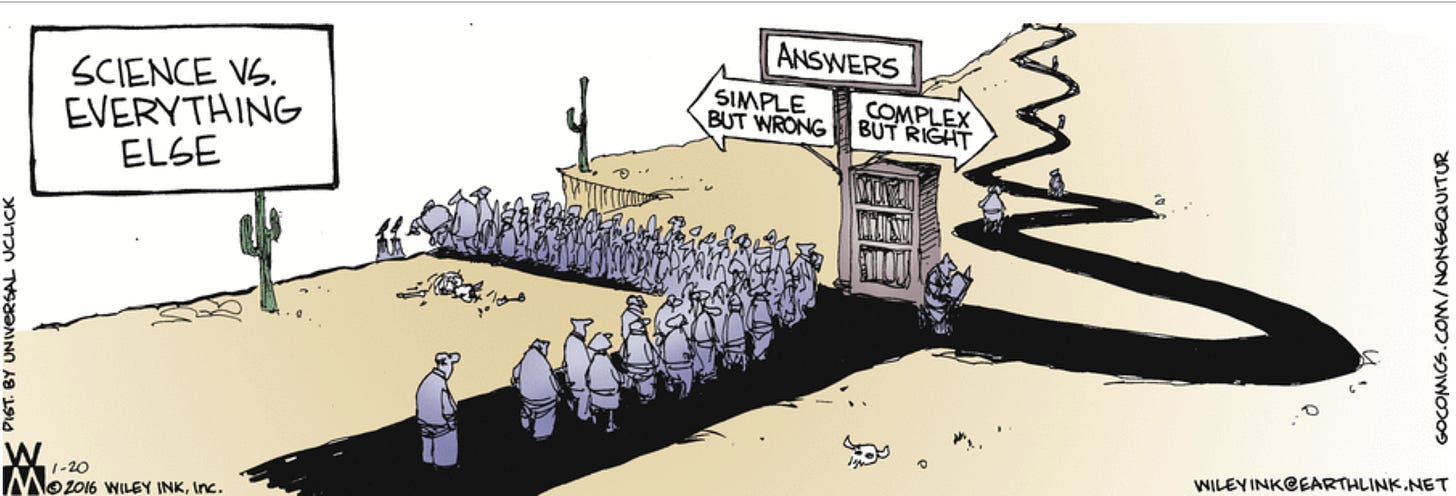Happiness in this world, when it comes, comes incidentally. Make it the object of pursuit, and it leads us a wild-goose chase, and is never attained.
~Nathaniel Hawthorne

Not the Point
The “pursuit of Happiness” language in the U.S. Declaration of Independence has survived in our cultural lexicon alienated from its context. The rest of the document — 1200 words — assert that governments exist at the pleasure of the governed, that prudent people will tolerate some level of suffering at the hands of an imperfect government for a limited time, but that the King of Britain has caused too much suffering for too long. It goes on to list specific examples of the King’s trespasses and finishes with a declaration of independence. In other words, it’s not about happiness so much as an end to suffering at the hands of a poor ruler.
I doubt the “pursuit of happiness” language was the Founders’ main focus when they wrote the Declaration. If they knew then the staying power that phrase would later prove to have, they might have written something a bit more nuanced, like “…Life, Liberty and an unobstructed path to Happiness.” Might have. On the other hand, this was a time when the very creepiest form of slavery — chattel slavery — was normalized. Which doesn’t seem like a path to happiness for anyone.
Anyway, many of us now (still?) interpret the pursuit of happiness as an invitation to disregard, with an expectation of governmental protection, the unalienable rights of others. Because it is getting some renewed attention lately, the practice of what we used to call leveraged buy-outs comes to mind as an example.
Pursuing happiness doesn’t even work, for goodness sake.
Some Generosity Nuance
My previous post mentions this study, which suggests a link between generosity and compassion. In my heavy paraphrasing (“we recognize others’ suffering; we empathize; we square up to the discomfort it evokes without turning away; we help”) of their definition for compassion, generosity (“help”) is the final step. By this reasoning, compassion implies generosity. And, according to this 2012 meta-study in Clinical Psychology Review, compassion is strongly associated with mental health and resilience. This supports the idea that compassion leads to at least two things: 1) generosity; 2) happiness.
But generosity is not necessarily compassionate, nor does it necessarily lead to happiness. A study published in Health Psychology concludes that volunteering extends one’s life expectancy if the volunteer’s motive is the well-being of others. If they volunteer for self-oriented reasons — virtuosity signalling, say, or networking in the hopes of landing a paying job — their volunteer work has no effect on their own life expectancy.
Further evidence that generosity per se and happiness are not causally linked appears in a study published in Nature. Their controlled experiment showed, first of all, that a public commitment to be more generous did result in 1) more actual generosity and 2) a larger increase in subjective happiness. But their data also showed that actual generosity and happiness were not well correlated. It was the public commitment to be generous that correlated to increases in happiness. Another tidbit that caught my attention is that the commitment was imposed on the experimental group — it was not their choice to commit. And yet it made them subjectively happier.
Another important detail in the Nature study is that the specifics of the subjects’ generosity pledge were left to the pledger. Generosity is most effective for both parties when it carries with it something of the giver — a choice they have made about the nature of the help they deliver. Furthermore, one of Elizabeth Dunn’s conclusions is that generosity has a stronger effect on the helper’s happiness when the impact on the receiver is witnessed by the helper. From a Hidden Brain podcast, “Happiness 2.0: Surprising Sources of Joy”: “[I]t really does seem to matter whether you can have a window into how you’re actually having an impact on others’ lives.”
A Policy Implication
To summarize, studies point in this direction: Helping others makes us happier. Being told to help does not change that…if we get to choose some specifics and witness the impact of our help.
There is an obvious implication for tax policy here, and the idea of tax choice fits right in. Remember, income redistribution is required. But can we do it in a way that chafes a little less? At this point, we certainly have the technology.
I am not a tax policy wonk, which frees me up to propose half-baked tax ideas, so here goes…First of all, the national budget wouldn’t change. Taxpayers could assign their tax payments to specific programs on a first-come first-served basis. Budget items would “fill up” as they accumulate taxpayer commitments. When a budget item is “full,” it is no longer available as a taxpayer choice. This would create two positive side-effects: 1) an incentive to file taxes early and 2) it would show (admittedly non-binding) taxpayer support, or lack thereof, for specific budget items. Made public, that information could act as a starting point for national dialog about our financial priorities — a referendum on spending.
To give us “a window into how [we’re] actually having an impact on others’ lives,” the IRS could provide a video — a mini-documentary — for each budget item. Each video would clarify, with the help of interviews with beneficiaries, how the program helped real people. This would not be restricted to social safety net programs like SNAP and unemployment; all governmental spending — military, Medicare, infrastructure overhauls, etc. — should make a meaningful difference, somehow, in the lives of some citizens. If not, well...maybe we should talk about it.
Next up: Back to more traditional macroeconomics — sorting out the interplay of various links between inequality and economic growth.



